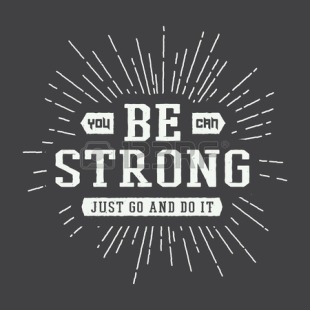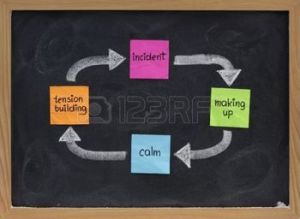Control is an illusion. When we most believe we are in control of a situation, we are actually out of control.
I believe the driving force of the need to control is fear. An acronym for fear is “False Events Appearing Real”. We fear what will happen if we let go and let life happen. I have found that when I let go of trying to control the world around me, my life is fuller and a lot more peaceful. When I keep the focus on myself, my relationships are better and I am less anxious. It is not an easy thing to do, letting go, especially when the need to control life around us was developed out of necessity to help us survive physically, mentally or emotionally. It’s hard to tell ourselves that part of our lives is over and there is no longer a need for what is sometimes called “white knuckling” (holding on so tight that your knuckles turn white). Like an addiction, letting go has to be done one minute at a time because the need for control touches every area of our lives. Try asking yourself in each situation:
- “What am I afraid will happen?”
- “Is my fear really logical?”
- “What am I running away from?”
- “What am I hiding from?”
- “What will happen if I don’t try to control this situation?”
- “Am I helping or hurting?”
- Is this my business?
I struggle with control issues. In the past, I could spot them in others but didn’t see them in myself until I realized that I have a need to control what others think of me. When I came to that realization, I began to look at possibilities in other areas of my life. I see it in my writing, the need to give every detail of every situation in order to ensure that the reader perceives what I have written as I believe they should. I cannot control what someone takes away from my writing just as I cannot control what people think of me. Every person is made up of life experiences and they have developed their individual beliefs, interests and opinions. Still it is difficult to let go of the illusion.
I feel that I have to make excuses or give reasons for any thing I say and/or do so that I can control how it is received. I try to make others understand why I am the way I am. It may be acceptable in this venue because we are all striving to learn from and support each other but it doesn’t work in my everyday life. My new goal is to accept myself as I am and stop worrying about what other people think of me because I cannot control their perception of me in any way. We have a saying in Ala-non, “What other people think of me is none of my business.” It took me a while to make sense of this saying but that was because I didn’t get the concept behind it. Yet, when I look at it as meaning as, “I cannot control what others think of me” the meaning is clear.
If you believe in God, the concept of “letting go” is simply “Let God and Let God.” Letting go is learning to trust that things will work as they are meant to. I have a friend who has a sticky note on her mirror that says, “(her name), Thanks but I don’t need your help today, Love, God.” Another tool that some of my friends use is a God Box. When something is worrying you, write it on a piece of paper and put it in your God Box. Once you have placed the problem in his hands, let go of it. This will only work if you let go of the situation. I have a tendency to turn it over then take it back, turn it over, then take it back like a Yo Yo.
God doesn’t expect us to let go of the steering wheel. For example, we can’t say, “I can’t pay my bills God, you take over” and sit back and wait. He expects us to use the knowledge and tools we have to solve problems to the best of our ability. If you are not a believer, the concept of letting go still works. When we try to control a situation, we usually end up making the situation worse, so just let go.
The burden of trying to control everything around us is stressful and exhausting and it’s not our job. What would life be like if we just put that burden down and put that energy into something more positive? Would it feel like freedom?






